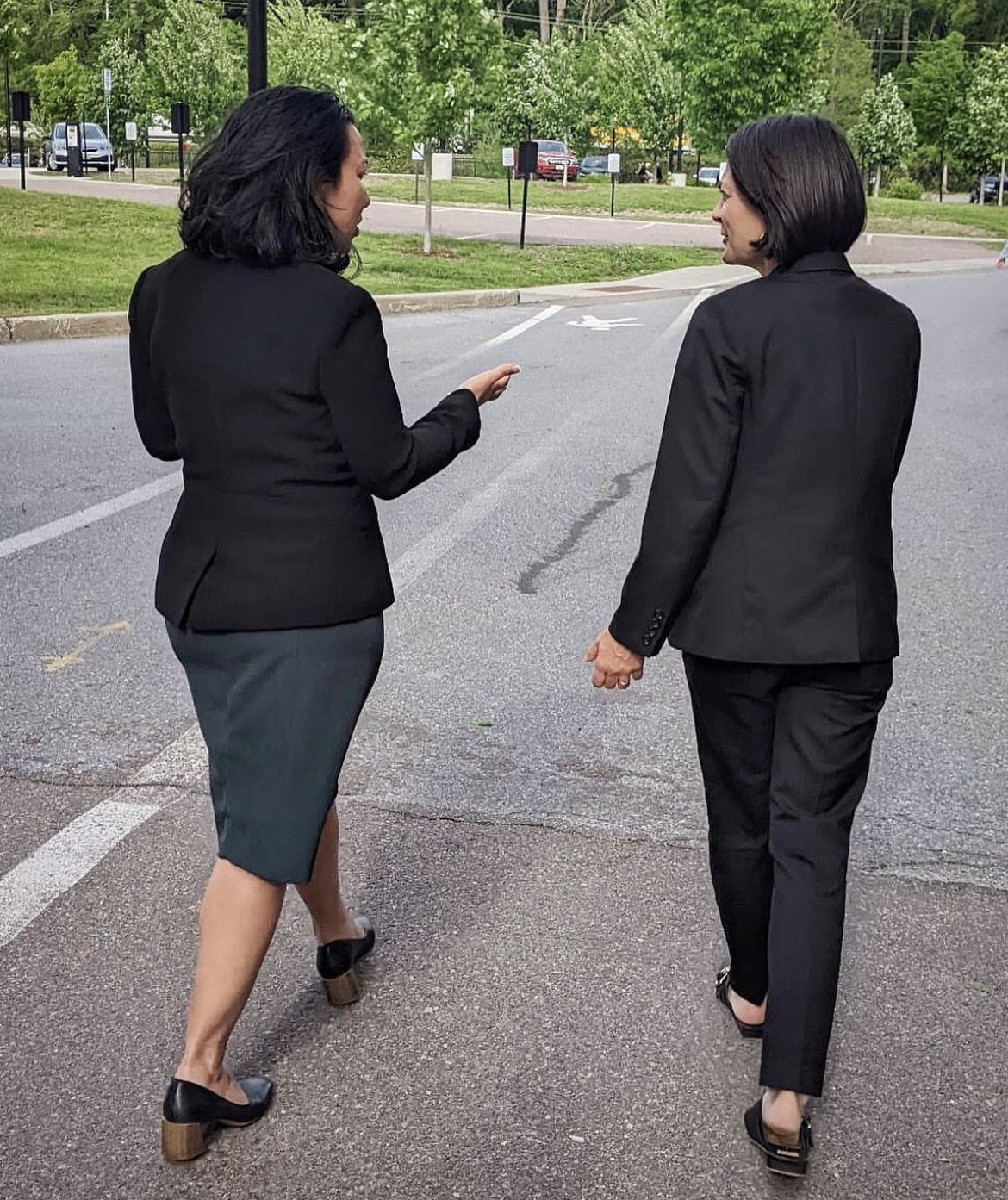
c/o Instagram
This past spring, I was hired by Vermont State Senator Kesha Ram Hinsdale’s campaign for the U.S. House of Representatives as their Southern Vermont Field Organizer—essentially the point person for everything south of Rutland City. We were competing in a fierce contest for the first open Vermont seat in Congress since 2006, and excitement across the state was palpable. I could barely contain myself. I finished my second semester final exams early and drove home to get started, plunging headfirst into the world of voter databases and fundraising events that would define my next three months.
Vermont is a small state and big political changes are rare. Ergo, when Patrick Leahy, the longest-serving and second-highest-ranking member of the United States Senate, announced last November that he would retire at the end of this legislative session, people started talking. Alongside Bernie Sanders, Leahy has been a key member of Vermont’s three-person Washington delegation since long before I was born. His retirement meant that Vermont was in for a good old-fashioned shake-up: within a week, Vermont’s at-large congressional representative Peter Welch had launched a surefire bid for the Senate, leaving his House seat up for grabs. Between December and February of 2021, a horde of hungry candidates threw their hats into the ring. The race was on.
The landscape of Vermont politics is drastically different than anything I’ve seen on the national stage–just listen to Noah Kahan’s “Stick Season” to get an idea of what the atmosphere feels like. For one thing, we’ve been consistently ranked among the top three most liberal states in the country for decades. Vermont is very rural, so communities form tight bonds, and generations of families stick around in the same neighborhoods. There are almost as many cows as people. It’s also 94% white, which many argue is the driving force behind its status as a progressive haven: it’s easy to be radically socially tolerant when everybody looks the same. In my time at Wesleyan, I’ve come to realize that most people think of Vermont as simply a whole lot of Ben & Jerry’s and Bernie Sanders. And in all realness, that’s not far off. Campaign drama typically revolves around who’s invited to the community potluck and which candidate gets to walk first in the Fourth of July parade circuit. Ben Cohen and Jerry Greenfield themselves came to scoop ice cream at one of the events I worked at last summer.
I knew I wanted to be involved with Senator Ram’s campaign as soon as she announced last January; she was the first-ever woman of color in the Vermont Senate, had a long track record of environmental and social justice work across the state, and I had gotten to know her after she delivered the commencement address at my high school graduation. Working on the campaign was harder and more profoundly satisfying than I could have imagined. Day after day, I was on the phone or the road assembling interns, lawn signs, and letter-writing campaigns to reach my childhood friends and neighbors. Vermont politics may sound quaint, but people care about those parades, those handshakes, and those potluck dinners. A lot. It was grassroots magic working right before my eyes. Senator Ram was the powerful agent of change we needed—a climate champion, a human rights worker, an antiracist advocate—and she was climbing in the polls. Then, on the doorstep of her second financial deadline, Senator Ram dropped from the primary to endorse her top competitor, pro tem Vermont Senate President Becca Balint. My stint in nationwide politics ended as abruptly as it started.
The night before Senator Ram made her withdrawal public, she assembled the team on a small Zoom call to talk it through. We all knew the issue beforehand: Kesha and Becca were splitting the progressive vote, providing an opportunity for centrist farm-girl-turned-criminal-prosecutor Molly Gray to take the lead. The pullout would unify the left and ultimately be better for the movement, and better for Vermont. Besides, if our team waited a few years for Bernie’s retirement, there was an opportunity for both progressive women to end up in the legislature. On Zoom, we each said our piece. By the time we were finished, there was not a dry eye on the call. The next morning, newspapers broadcast a photograph of both women with their arms raised together in victory.
For me, the process was a complex lesson in what it truly means to work for something you believe in. I cannot deny that a part of me wanted our team to stay in the race, to battle it out until the bitter end. I didn’t want to be on the losing team. I didn’t want to have to find a new job. I felt wrapped up in that us v.s. them mentality that characterizes modern politics from the local to the national stage. It was easy to forget that on a basic level, we all wanted the same thing: a more just world for the people we love.
Far removed from the nastiness of us v.s. them, Senator Ram’s decision was a selfless and courageous display of leadership. She unequivocally placed collective good above personal gain, proving to me once again why she belongs in Washington. Her sacrifice remains unknown to most of the state, but it’s thanks to her that Balint will head to Washington in January as the first LGBT person and first woman to ever represent Vermont. Together, Kesha and Becca exemplify exactly what we were fighting for. Two battle-tested trailblazers—one queer, one a woman of color—subverting conventional narratives about women in politics by uplifting one another and using empathy as power for a better future.
Sophie Jager can be reached at sjager@wesleyan.edu.